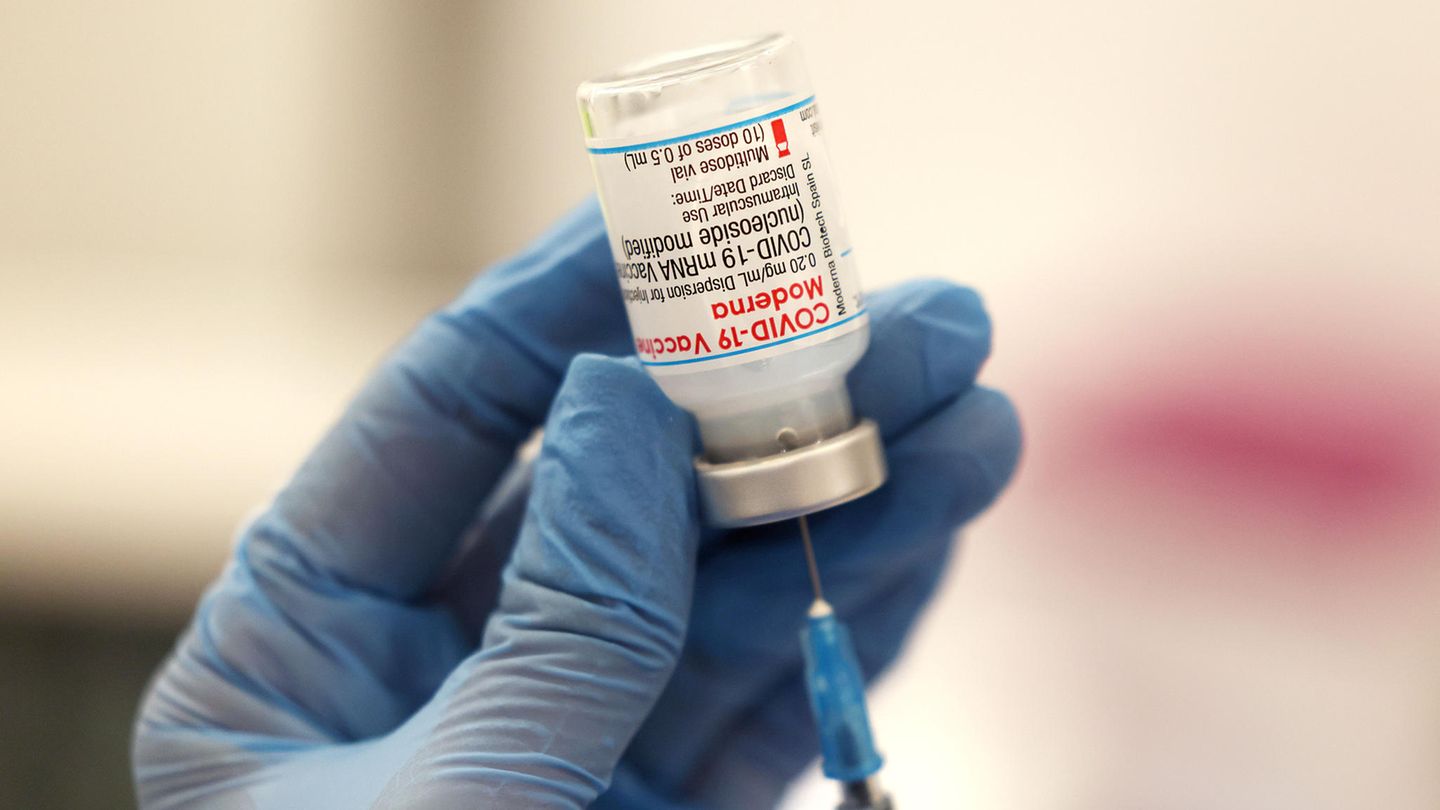Well then: The Standing Vaccination Commission has recommended a second booster vaccination for people who are particularly at risk. Is this the insidious beginning of an eternal after-booster? Probably not!
First one, then two, then three, then four… What applies to Advent candles now also applies to vaccinations. At least for all people over 70, for residents in old people’s and nursing homes, people with immune deficiency diseases and all employees in the health sector.
The Standing Vaccination Commission (Stiko) has now recommended a second booster vaccination against the coronavirus for all of them. In the case of people at risk of health, it should be given no earlier than three months after the first booster, and the nursing staff should be there after six months at the earliest.
It is unclear whether the recommendation will be expanded in the near future. For the third, so-called booster vaccination, older people were called on first, before virologists, after reviewing numerous studies, came to the conclusion that everyone clearly benefits from a booster vaccination.
So the question arises: Is the vaccination now in a continuous loop, as is usual with flu vaccination, for example?
Data from Israel basis for Stiko recommendation
No one can say for sure at the moment. The Stiko bases its recommendation for the fourth prick on data from Israel. Initially, people over the age of 60 and healthcare workers were asked to get the fourth vaccination, but the recommendation has now been extended to people with previous illnesses, their carers and adults who are at particular risk of infection at work. Around 610,000 people in Israel have now received a fourth dose of the vaccine. It has been shown that protection against infection is twice as high as after the third vaccination. In the group of vaccinated over 60-year-olds, the protection against a serious illness is even three to five times as high.
But is the fourth vaccination worth it at this point in time? Wouldn’t it be better to wait for the new vaccines adapted to the omicron variant announced by Biontech/Pfizer and Moderna for March?
The Stiko clearly says no. According to her, people for whom additional protection makes sense should resort to the vaccines that are already available. As a reason, Stiko boss Thomas Mertens said that the newly developed vaccines would first have to be examined. The Commission is dependent on the data from the clinical studies by Moderna and Biontech/Pfizer, which in turn would take time.
Unlike in Israel, however, health experts in this country do not come to the conclusion that the fourth prick should be released for everyone. There is no reason for this, said the chairman of the National Association of Statutory Health Insurance Physicians (KBV), Andreas Gassen in the “Bild”. In his eyes, normal citizens are “probably very well protected against serious illness and death for a long time” after three vaccinations.
The President of the German Society for Immunology, Christiane Falk, made a similar statement in the “Süddeutsche Zeitung”: “With the third vaccination, there is long-term comprehensive immunity.” And the Frankfurt immunologist Sandra Ciesek also believes that a fourth vaccination is not necessary for everyone at the moment. For Omikron, that doesn’t make “a big difference”. The antibodies rose less than after the second or third vaccination “and I also know some who got infected despite four vaccinations”. In the long term, however, more than three vaccinations are conceivable: “I do believe that some people will have to be vaccinated regularly.”
Impact on mandatory vaccination debate
However, the Stiko recommendation for the second booster will certainly change the debate about compulsory vaccination. The argument that herd immunity can only be achieved through mandatory vaccination seems at least questionable if it turns out that the existing vaccines do not lead to any sustainable protection against infection and that one has to be boosted again and again.
Sources: , , DPA, AFP
Source: Stern




